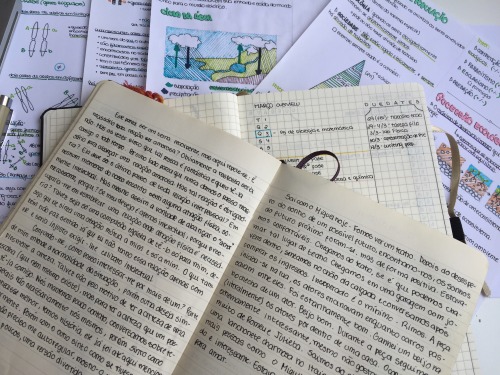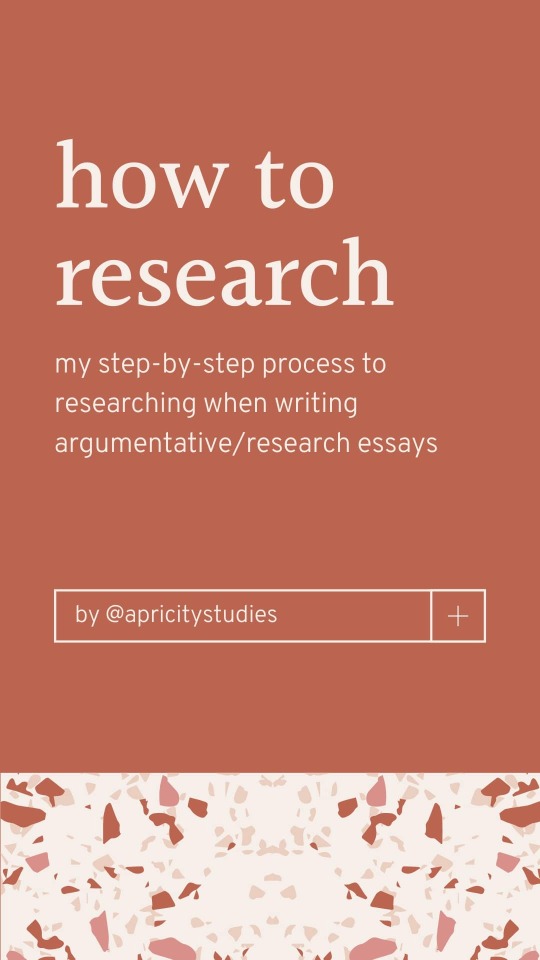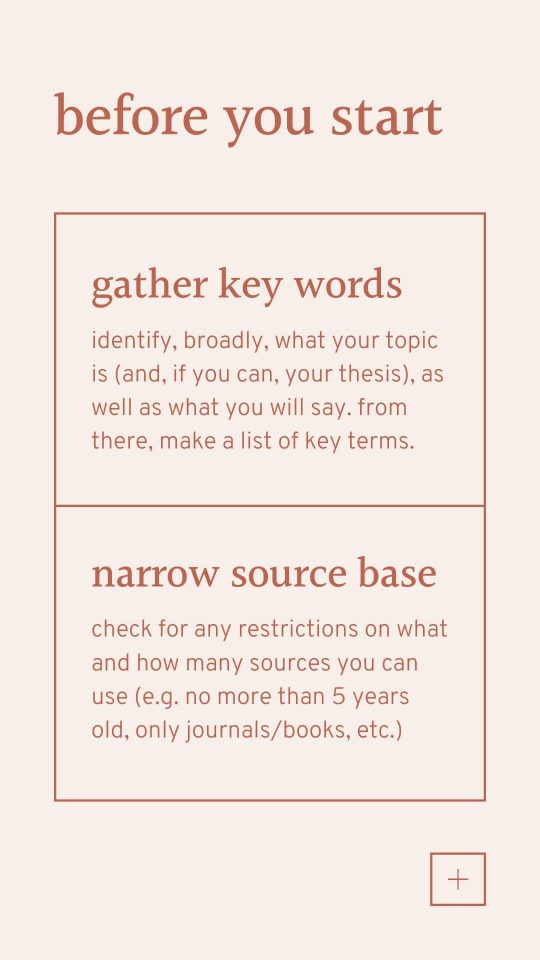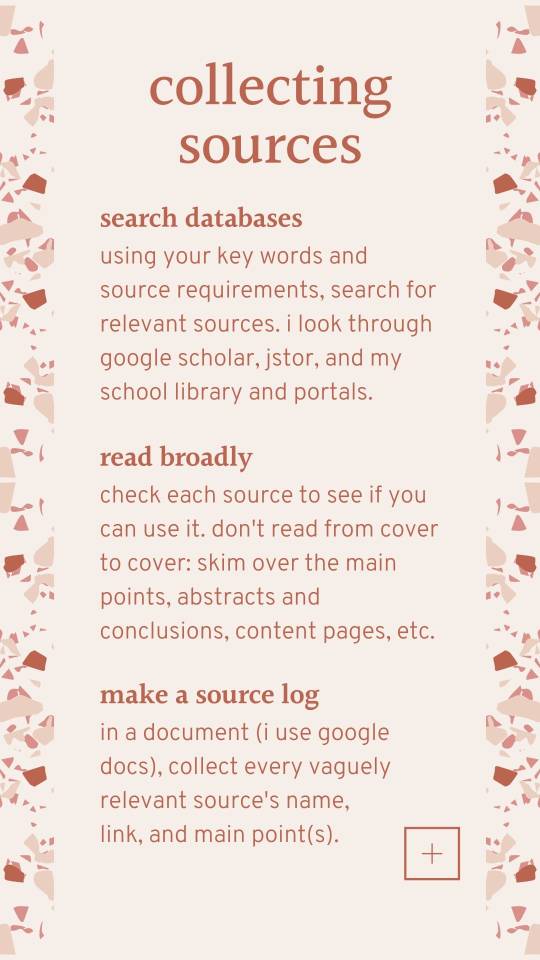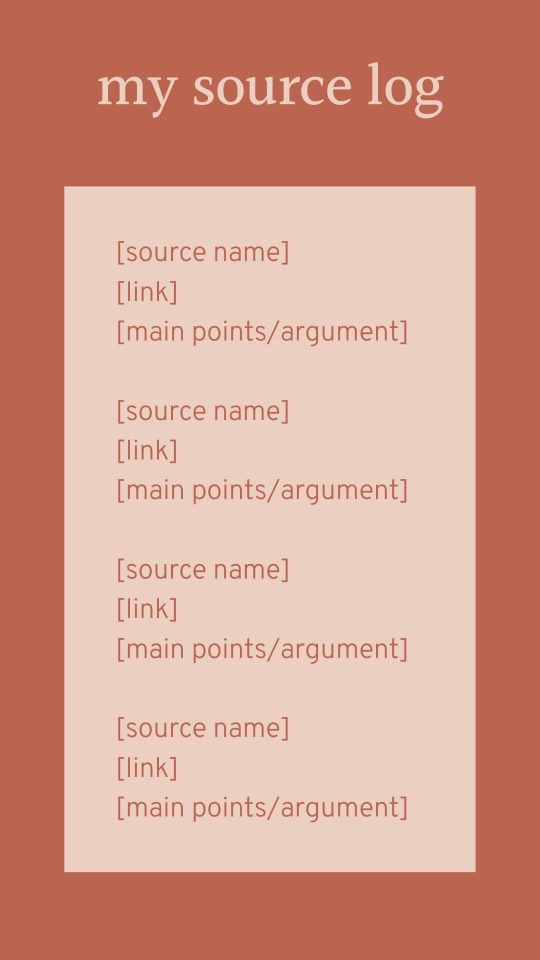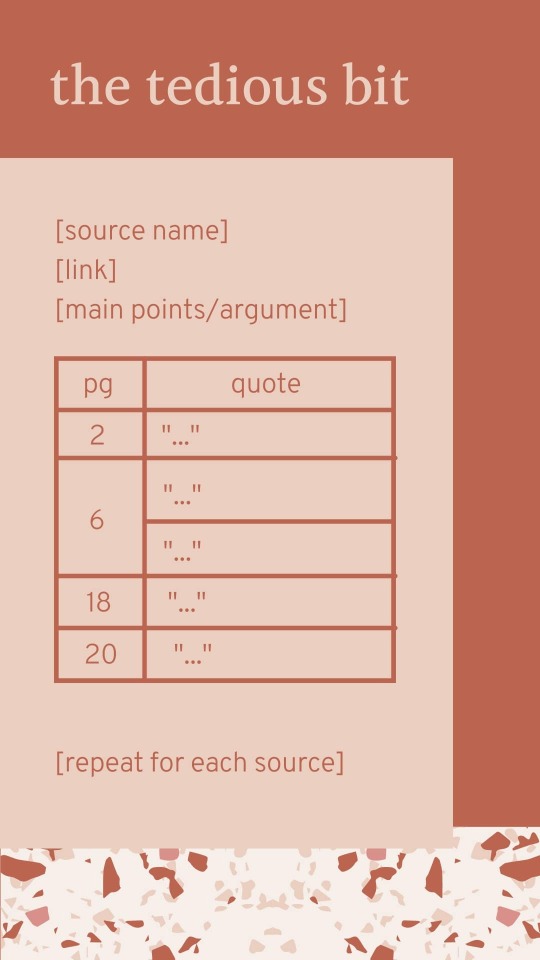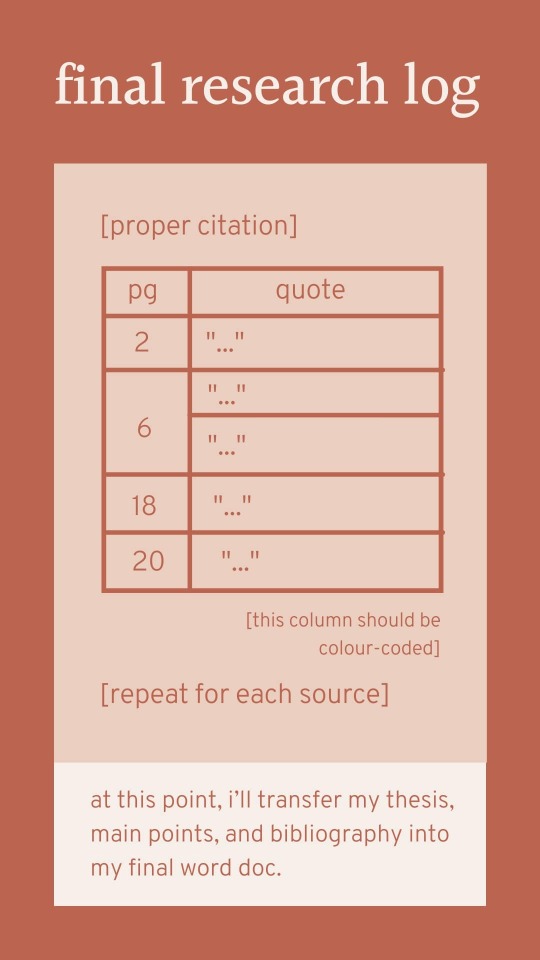Notetaking
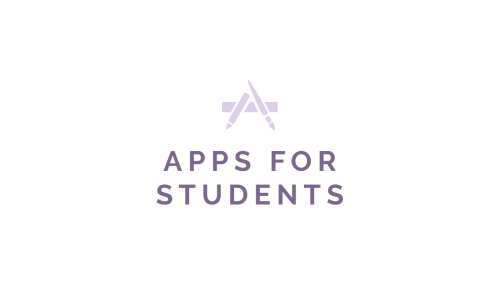
Notetaking
Sound Note - take notes while you record audio
Evernote - notetaking that syncs across platforms
Paper 53 - minimal notetaking that syncs
Microsoft OneNote - collaboration and syncing, best for Office users
Google Keep - jot things down, best for Google suite users
Notability - take notes and annotate PDFs
Mindly - create mind maps
Day One - a digital journal
Flash Cards
Quizlet - the quintessential flash card app
StudyBlue - another commonly used app
Cram - best for its “cram mode”
Eidetic - uses spaced repetition for effective memorization
Planner
My Study Life - schedules, tasks, reminders, and more
StudyCal - keeps track of tasks, exams, and grades
24me - automated reminders and event planning
iStudiez - schedule and prioritized task list
Google Calendar - a calendar, best for Google users
Glass Planner - a calendar and to do list with incredible functionality
To Do List
Clear - organized to-do and reminders
MinimaList - simple to-do and focus timer
Trello - collaborative project organizer
Todoist - clean and functional task manager
Default notes app on your phone
Time Management
Forest - plant trees by staying focused
Pomotodo - pomodoro timer with to-do list
Timeglass - custom timers
Tide - pomodoro with white noise
Alarmy - forces you out of bed
Pillow - smart alarm that tracks sleep cycles
Productivity
Workflow - automate tasks
Habitica - turn your habits into an RPG
Continuo - simple, colorful activity tracking
Freedom - block distracting apps
Free Learning
Coursera - free MOOCs
TED - listen to Ted Talks
Duolingo - language learning
Memrise - spaced repetition language vocabulary
Khan Academy - free video lessons
Ambient Noise
8tracks - curated playlists
Spotify - online music streaming
Coffitivity - cafe ambience
Noisli - background sound generator
Rain Rain - rain sounds
Binaural - binaural beats
Health
Rockin Ramen - recipes based on ramen
MealBoard - meal planning
Lifesum - healthy eating
Stop Breath And Think - mindfulness meditation
Pacifica - mental health management
Sworkit - personalized video workouts
Waterlogged - hydration tracker
Reference
WolframAlpha - Google on steroids
Oxford Dictionary - all of English at your fingertips
RefMe - citation generator
PhotoMath - solve math problems by taking a photo
Mathway - step by step math help
Desmos - free graphing calculator
Wikipedia - not the best source, but it’s handy
Miscellaneous
Companion - stay safe when walking alone
Mint - money management
Toshl - finance manager
Tiny Scanner - scan documents
More Posts from Swirlspill-study and Others
Medical Student Resources 101
I’ve been thinking about this post for quite a while now, and I have finally decided how I want to approach it. If you have any suggestions, please comment or message me! So, when I started medical school 18 months ago all I had available to me was a crazy long list of textbooks recommended by the university. It has been an uphill battle figuring out what textbooks are helpful and which are less than helpful. So this is my masterpost of resources I’ve used for medical school thus far, organised by systems!
Basics
You’ll need a good anatomy atlas, physiology text and pathophysiology book as a bare minimum. Most universities also guide you towards a clinical skills book of some sort.
Anatomy:
Rohen and Yokochi “Color Atlas of Anatomy: A Photographic Study of the Human Body”
I used an old version of this book, and it was amazing for our human dissection block, I would strongly recommend it.
Physiology:
Boron “Medical Physiology”
Guyton and Hall “Textbook of Medical Physiology”
I used a combination of these two, Boron can be very heavy, so I only used it for topics I had a really good grasp of and wanted to know more about. I would recommend Guyton over Boron if you can only get one.
Pathophysiology:
Robbins and Cotran “Pathologic Basis of Disease”
This is one of the best books ever written. I cannot recommend it highly enough.
Clinical and Practical Skills:
Talley and O’Connor “Clinical Examination”
This was recommended by my university. It is a good textbook, however I’ve recently discovered:
Thomas and Monaghan “Oxford Handbook of Clinical Examination and Practical Skills”
and I personally prefer this, but it is much more concise, so Talley is great for all the background information.
Cardiovascular
Lilly “Pathophysiology of Heart Disease”
This textbook is fantastic, very easy to read and covered all of our cardiovascular block thoroughly.
Respiratory
West “Respiratory Physiology: The Essentials”
This book can be a bit hit and miss. I really didn’t like respiratory physiology, so I struggled a bit with this one, I used a combination of Guyton and Hall, and West. For pathophysiology you can’t go wrong with Robbins and Cotran.
Genitourinary
I didn’t use a specialised book for this block. For physiology I used Boron, which was insanely hard as a first year student. I also used Guyton and Hall at the end of the block, which was much better. So I’d definitely recommend Guyton and Hall for physiology and Robbins and Cotran for pathophysiology.
Gastrointestinal
Chew “Crash Course Gastrointestinal System 3e”
I really liked this book for this book, I thought it covered the hepatic system very well, overall it was very easy to read and understand. This book and Guyton and Hall if you wanted to supplement it would be great. As always, Robbins and Cotran for indepth pathophysiology.
Endocrine and Reproductive
Porterfield and White “Endocrine Physiology”
This was one of my favourite blocks! The university recommended Greenspan’s “Basic and Clinical Endocrinology”, which for what we needed was probably too much. I found a fantastic little orange book at the library, which I will need to go get the name of, so keep an eye on this if you need a good endocrinology book. UPDATE: little orange book found!
Psychiatry
Kaplan and Saddock’s “Synopsis of Psychiatry”
This is actually a really great book for any psychiatry you might do. We only used it for four weeks, but I’d definitely recommend hiring a copy if you can!
Neurology and Neuroanatomy
Yogarajah “Crash Course Neurology, 4e”
Fix “BRS Neuroanatomy”
Young “Basic Clinical Neuroscience”
This has been an incredibly hard block to find a good text for, at a reasonable price. These two have been very helpful, and I find them easy to read. Only time will tell if it has been enough to pass! Update: Young’s book is also excellent!
Musculoskeletal
Jenkins “Hollinshead’s Functional Anatomy of the Limbs and Back”
This is the most amazing textbook for any block of all time ever. Literally. It is so good! I’ve used a combination of this book, and:
Moore and Dalley’s “Clinically Oriented Anatomy”
for our musculoskeletal block. It’s been absolutely fantastic. I’ve enjoyed it so much! I would also recommend investing in some quality flashcards. I have:
Hansen “Netter’s Anatomy Flash Cards”
Which have been great, another really great resource has been WinkingSkull.com, which you do have to pay for, but it is helpful!
Other
So, there are a few other resources I’ve used that have been very helpful. Mostly online databases and websites but I thought it would be handy to have them. Many (most?) universities have subscriptions to them so try your university library website!
UpToDate: www.UpToDate.com
Everything you ever needed about anything in medicine
Best Practice: www.bestpractice.bmj.com
This is my favourite resource. Ever. It goes through signs, symptoms, risk factors, diagnostics, differentials, everything. It is a small slice of heaven in medical school.
Lancet Review Articles
There were a really great series on Immunology in The Lancet, I would strongly recommend trying to find them for a concise overview of immunology
Life In The Fast Lane: www.lifeinthefastlane.com
Great series on ECGs!
Radiopedia: www.radiopaedia.org
These guys are great for understanding what you’re actually supposed to be seeing on any radiological film. I’ve been using it a lot for musculoskeletal, looking at Le Fort fractures, etc.
Toronto Notes
So I just borrowed a friend’s copy of Toronto, but I believe there may be online access. Maybe an online version. It’s great for an overview and is a little more clinically focused. I really liked it for gastrointestinal, psychiatry and neurology.
Anatomy Zone
There’s a website and a YouTube channel with great tutorials and information for anatomy, particularly musculoskeletal. I’ve found it immensely helpful whilst studying for this block!
I know I’ve probably missed a few things, I’ll add them as I think of them but I hope this helps a few pre-clinical medical students out there! If it’s helpful I’ll keep you posted as I move into my clinical years on new texts and resources I find helpful!
Hey so I'm not sure if you have any resources I can use to study chemistry? Thanks in advance!
Chemrevise
It’s actually my chemistry teacher’s website, and pretty much everyone in my school lives off the notes he posts. The notes are concise but include everything and are especially good if you’re in the UK system/doing A Levels because he tailors them to the different exam boards. Even if you’re not a UK student, it’s still a great resource because science is the same everywhere lol (and the tab that says ‘Textbook’ is more universal and not exam board specific).
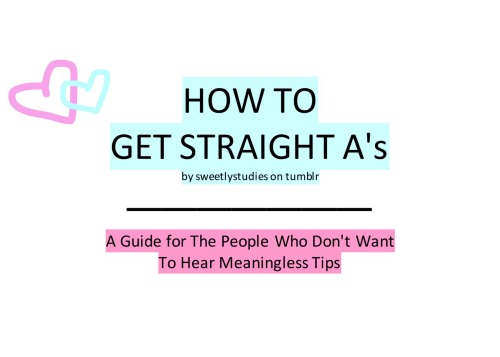








Hey guys! These are 7 (technically 8) tips on how to get straight A’s! I’m sorry for the mistakes — ONE: the tip “Some Study Methods” should actually be number 7, not number 1 hehe. TWO: in tip number 6, “Doing your homework”, it says ‘always remember tip number 6!’ what I mean is *always remember tip number 5!* STUDYBLRS — reblog this for a possible follow hehe (see tip 3). Anyway this whole thing took me HOURS. Hopefully it helps someone! ily all & good luck!

“It’s dangerous to go alone! Take this.”
Hi, everyone! If you’re like me and you love a good game soundtrack or a great playlist of all sorts of game music, this is the masterpost for you. I’m one of those people who studies better with some music in the background, and what better way of making a study session more enjoyable than by listening to the soundtrack of your favourite game?
Why listen to music while you study?
Multiple studies have proven that certain students who listen to music while they study perform better academically. Unfortunately, it’s not for everyone, so you should really figure out if this is the right method for you before commiting yourself to it! The main arguement for studying with music is that research has proved that listening to classical music in particular helps the brain absorb more information and also helps stimulate one’s thinking!
On the other hand, some people tend to lose all concentration when there’s any music or noise in the background, which leads to procrastination and lower productivity. In short, if you can’t concentrate on the task at hand and get distracted easily, this isn’t the best method for you!
Playlists
I started actively looking for playlists with game music about two years ago and instantly fell in love. There are so many good playlists of various lengths and genres that are accessable on platforms like spotify, 8tracks, youtube, etc. All of the playlists include the tracklist in the description below them!
Note: I won’t be adding any playlists from 8tracks because they only work in the US and Canada.
i. General
Game music for studying: Some of you might have already heard of these videos before. They’re roughly an hour and a half long and include some of the more calming tracks from a lot of different games. All the names of the tracks are listed in the description below, which is super handy if you want to find out which game it’s from! I thought I’d put in the playlist of all of them so you can just press play and enjoy!
Video game music! 2.0: Probably the longest playlist you’ll find anywhere. a n y w h e r e. 223 hours of amazingness that you’ll never regret!
ii. Calming/ relaxing
5 hours of atmospheric game music: This is one of my personal favourites. It’s very long so you don’t have to worry about looking for another playlist when this one finishes.
Relaxing video game music: Another gem! Once again with all the tracks in the description. This one’s great for shorter study sessions since it’s only and hour long.
More relaxing video game music: If the previous playlist was too short for you, check out this 3 hour one! I used this one a lot last year!
Calming Nintendo music: A super great playlist for all you Nintendo fans! It includes some really nice tracks from the Legend of Zelda series, if you’re into those soundtracks!
Jesper Kyd playlist: Ever since I first played Assassin’s Creed 2, I’ve loved Jesper Kyd’s work. This is quite a long playlist including some of his best tracks from various games. My favourites are towards the end!
Relaxing Legend of Zelda music: You had to see this one coming. The LoZ series has some of the best soundtracks to study to (, in my opinion,) and some of the prettiest and most calming tracks. I highly recommend this 42 minute playlist for those times when you just don’t feel like working.
2 hours of sleepy video game music: This is also a little series of playlists. There are 4 of these videos in total, which adds up to 8 hours of sweet, sweet music.
iii. Epic/ badass
Epic video game music: For all of you who need a little badass music in the background! 2.5 hours of epic and awe inspiring music to really get some work done!
Focus - video game music: Spotify has some really great playlists, so I thought I’d include a few! This playlist is a little more epic and loud, but if that’s the mindset you really need to push through, this would be great for you. It’s an amazing 11 hours long so you’ll never run out.
Orchestral video game music: Another epic playlist, including the occasional lullaby. This is a 7 hour long playlist, so a little shorter than the previous one, but by no means less epic and badass!
Soundtracks
Compared to the playlists, soundtracks tend to be a mix of epic and calming music. Most games have their perilous moments and their I’m-so-relieved-I-managed-to-beat-that-boss-with-only-one-heart-left moments. The world of video games is vast, so I’ve selected a few of my favourite soundtracks to share with you instead of listing all of the ones I can find.
Legend of Zelda - Skyward Sword: One of my favourite all time games! The soundtrack is long too, so you don’t have to worry about looking for a new one afterwards.
Legend of Zelda - Ocarina of Time: This game is widely believed to have the best soundtrack in video game history. All I can say is so sit down, gather your work and to just enjoy.
Final Fantasy VI: This 1994 gem has an avarage playtime of 65-70 hours. The game has such a good storyline and the soundtrack is a little old school with a lot of non-orchestral tracks. I’d still recommend this to everyone who likes an older style of video game.
Suikoden Tierkreis: I have memories of me just going to the overworld map so I could listen to the music. It’s that good.
Bioshock Infinite: I’ve only ever played the first in the series, but I watched a walkthrough of this particular game and I loved it so much! The music is slightly creepy and loud sometimes but it’s a really great soundtrack overall.
The Last of Us: Another game I’ve never actually played, but the walkthrough was amazing. The soundtrack is very atmospheric and doesn’t have a lot of loud parts, so it’s generally calm.
Assassin’s creed 2: My all-time favourite game ever. As you know from before, I think Jesper Kyd is amazing, so putting these two elements together makes a truly great game. The soundtrack is actually quite well known because a few of it’s most popular tracks are featured a lot in other playlists. E.g. Dreams in Venice and The Madam.
The Elder Scrolls V - Skyrim: I’ve listened to this one a few times and I think it’s really good! It starts off quite strong but it has a lot of calmer songs too.
Fable 2: The Fable series is well-known for being short, so the soundtrack is also on the shorter side. I know the dialogue in the game almost by heart and I can guarantee you that there’s a lot of atmospheric music in this soundtrack.
Fragile: This one was recommended to me by a friend on tumblr years ago. It has really sweet songs and has a lot of piano centered tracks.
Now get to work!
I hope I’ve helped you find the perfect game music to accompany you while you study! If you have any recommendations, feel free to send me a message! I’m always up to discovering new playlists/ soundtracks.
More posts
upgrade your notes!
how to start studying infrographic
handy apps for economics students
five easy steps to becoming a better you
feed yo’ brain
dealing with lazy groupmembers
X Lou

The basics of Research Methods. There’s so much to learn in AS and more is added in the second year. In an exam you could be asked to state which hypothesis is being used in an example, which experimental method would be best for a situation, or to create your own research plan.

01.14.16 4/100 days of productivity
Making study notes for my Abnormal Psychology midterm on Monday~ My hand is cramping 😭
-
 mymusicbias liked this · 2 months ago
mymusicbias liked this · 2 months ago -
 jay-bird54 reblogged this · 2 months ago
jay-bird54 reblogged this · 2 months ago -
 jay-bird54 liked this · 2 months ago
jay-bird54 liked this · 2 months ago -
 severide-stella reblogged this · 2 months ago
severide-stella reblogged this · 2 months ago -
 allofmytoxicity reblogged this · 2 months ago
allofmytoxicity reblogged this · 2 months ago -
 allofmytoxicity liked this · 2 months ago
allofmytoxicity liked this · 2 months ago -
 sunstarmoon reblogged this · 2 months ago
sunstarmoon reblogged this · 2 months ago -
 fourty7wonder reblogged this · 2 months ago
fourty7wonder reblogged this · 2 months ago -
 juniperjello liked this · 2 months ago
juniperjello liked this · 2 months ago -
 livisresources reblogged this · 2 months ago
livisresources reblogged this · 2 months ago -
 ohhoneyhoneyy liked this · 2 months ago
ohhoneyhoneyy liked this · 2 months ago -
 meowow32 liked this · 3 months ago
meowow32 liked this · 3 months ago -
 d-i-r-t-y-p-i-c-t-u-r-e liked this · 3 months ago
d-i-r-t-y-p-i-c-t-u-r-e liked this · 3 months ago -
 shaun-lara reblogged this · 3 months ago
shaun-lara reblogged this · 3 months ago -
 shaun-lara liked this · 3 months ago
shaun-lara liked this · 3 months ago -
 theromanticaf reblogged this · 4 months ago
theromanticaf reblogged this · 4 months ago -
 c1b003 liked this · 4 months ago
c1b003 liked this · 4 months ago -
 thelostworld001 liked this · 5 months ago
thelostworld001 liked this · 5 months ago -
 kennedypeterson liked this · 5 months ago
kennedypeterson liked this · 5 months ago -
 tamsmind liked this · 5 months ago
tamsmind liked this · 5 months ago -
 manchesther-studies reblogged this · 5 months ago
manchesther-studies reblogged this · 5 months ago -
 manchesther-studies reblogged this · 5 months ago
manchesther-studies reblogged this · 5 months ago -
 calmnessisasuperpower liked this · 6 months ago
calmnessisasuperpower liked this · 6 months ago -
 shannon-belez liked this · 6 months ago
shannon-belez liked this · 6 months ago -
 adoranion liked this · 6 months ago
adoranion liked this · 6 months ago -
 anna35foc liked this · 6 months ago
anna35foc liked this · 6 months ago -
 cultivateyourallure liked this · 6 months ago
cultivateyourallure liked this · 6 months ago -
 spectational liked this · 7 months ago
spectational liked this · 7 months ago -
 shimpeisama liked this · 7 months ago
shimpeisama liked this · 7 months ago -
 riyah-jaay liked this · 7 months ago
riyah-jaay liked this · 7 months ago -
 bitesizedog liked this · 7 months ago
bitesizedog liked this · 7 months ago -
 introspectionera liked this · 7 months ago
introspectionera liked this · 7 months ago -
 therealmsparkerrrr reblogged this · 7 months ago
therealmsparkerrrr reblogged this · 7 months ago -
 ember-44 liked this · 7 months ago
ember-44 liked this · 7 months ago -
 carefortheearth reblogged this · 7 months ago
carefortheearth reblogged this · 7 months ago -
 carefortheearth liked this · 7 months ago
carefortheearth liked this · 7 months ago -
 aastuv liked this · 8 months ago
aastuv liked this · 8 months ago -
 thefishdeath reblogged this · 8 months ago
thefishdeath reblogged this · 8 months ago -
 thefishdeath liked this · 8 months ago
thefishdeath liked this · 8 months ago -
 ryahisbored liked this · 8 months ago
ryahisbored liked this · 8 months ago -
 voidwolf reblogged this · 8 months ago
voidwolf reblogged this · 8 months ago -
 voidwolf liked this · 8 months ago
voidwolf liked this · 8 months ago -
 creaturecovesdomain reblogged this · 8 months ago
creaturecovesdomain reblogged this · 8 months ago -
 all-the-beautiful-chaos liked this · 8 months ago
all-the-beautiful-chaos liked this · 8 months ago -
 zippythezebra reblogged this · 8 months ago
zippythezebra reblogged this · 8 months ago -
 bookish-embroidery-witch reblogged this · 8 months ago
bookish-embroidery-witch reblogged this · 8 months ago
a study blog for collected references, advice, and inspiration
267 posts






